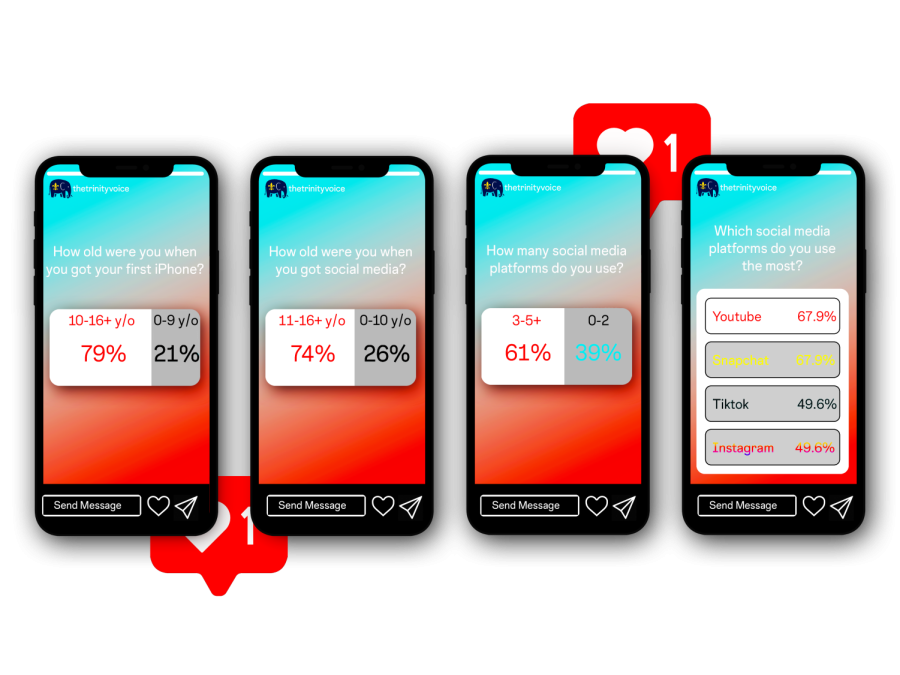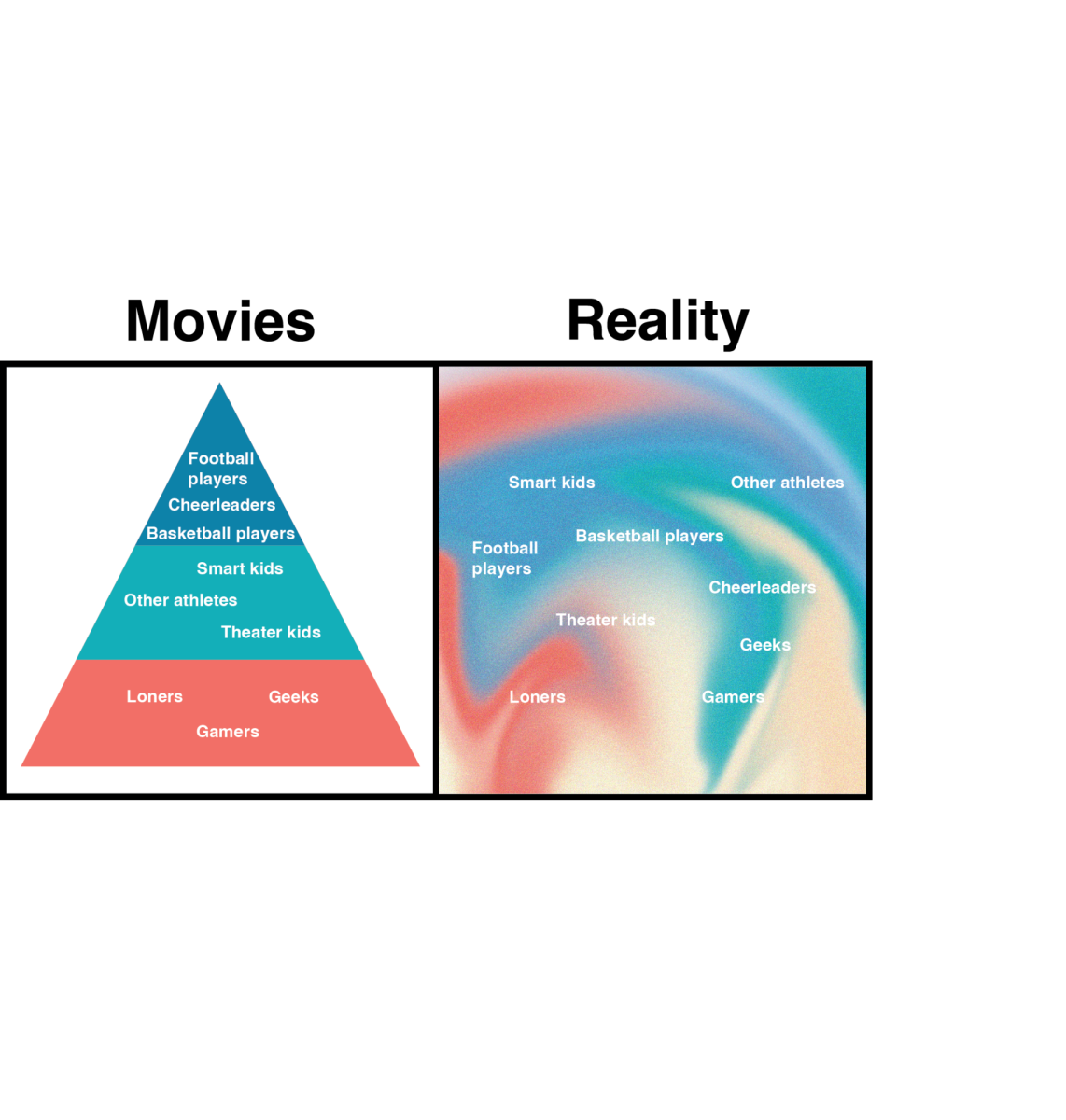Social media is a place with unlimited potential. It can spread good, or it can release bad. For young kids using social media, the potential for negative impact becomes even more extreme because they are much more impressionable.
Social media has never been necessarily kid-friendly. Despite the age ratings that have become nothing more than a suggestion, younger kids are joining these apps and becoming part of the large masses addicted to social media.
According to a poll sent to Trinity students, out of 400 responses, around 20% downloaded social media at the age of 12, and 16% got it at the age of 11. Some began even younger, such as eighth grader Olivia Agnew, who has had social media since the age of eight, when she first got Musical.ly, and has had some form of social media ever since.
“I’ve always had TikTok because my mom thinks it’s very creative,” Olivia said. “I’ve had Instagram since sixth grade and Snapchat since seventh grade.”
According to a report from the University of Michigan, one-third of children ages seven to nine years old use social media apps. They are being exposed to all types of content on the internet, good and bad. The things they are being exposed to influence their social and emotional development.
Social media platforms have so many ways to keep people coming back, but these techniques can negatively impact the children using these apps because they weren’t designed for young kids in the first place. Kids are being exposed to things that impact their mental health, self image, and beliefs in general.
“Because many are under the age of 18 they don’t have the maturity to switch off from social media,” Olivia Agnew’s parent Genny Agnew said. “They don’t realize how obsessive it can be which has a toll on their mental health from FOMO to anxiety to loneliness.”
In August, California lawmakers passed two bills designed to protect minors using social media. These bills would force social media platforms and online services to make sure their features protect the minors using them by re-evaluating the risks that these services might cause to children.
“Our children are getting bombarded with information online, and they don’t yet have the capacity to understand all that information coming at them,” California assembly member Buffy Wicks said before the vote on August 30th.
“We want to make sure that when these products are created, they are by design and by default safe for our children.”
Bill AB 2273 would stop companies from using minors’ personal information. This would force social media platforms to enable data privacy measures to protect minors’ information from being used in a way that might hurt them. Bill AB 587 would require social media companies to make their privacy policy and terms of service available to all users.
California assembly members Jesse Gabriel and Buffy Wicks suggest that this bill might motivate other state governments to pass bills similar to this one to protect the growing number of minors on social media.
“Unlimited access to news, brands and other privileges previously reserved for adults can force children to mature faster,” Genny said. “They are more savvy than previous generations.”
When kids see their favorite influencer look or act a certain way, they will be more prone to copying that behavior, which can cause them to change their behavior to mimic the influence.
“I think that having social media so young can really impact who you want to be; having so many expectations kind of sets you up for failure because no one’s perfect,” senior Lilly Lawton said.
“And when you put up a somewhat perfect persona on a social media platform that isn’t accurate, it can really hurt individuals.”
Another impact that social media has on individuals has to do with the unrealistic standards that are so regularly seen. These ideals create false expectations that are ingrained in young kids from frequent exposure.
“When you’re scrolling forever, you start to compare yourself,” Olivia said.
“You feel like, ‘oh I could be like that, or oh I wish that was me.’”
This exposure to the unrealistic beauty standards seen on social media can cause young users to become insecure about their appearance. They change their appearance and look older, but they usually do not mentally mature until around 18 years old.
“I think social media can be a good thing when it comes to maturing, because you see older people on social media, but at the same time, I think it can hurt young girls and guys,” Lawton said.
“You see all these expectations and beauty standards, and that can definitely impact teens’ insecurities.”
Social media can also become consuming for young kids who don’t have the maturity to realize how obsessive it can be.
“I personally try to limit myself on social media just because I hate how it kind of consumes some people,” Lawton said. “I think that’s a really good way to limit how much it’s influencing you and the decisions you make.”
Social media has become a large part of society and will continue to influence people. As kids continue to use social media, it will change the way they mature and change. It’s important to think about how much social media is impacting the most influential group of people, kids.
“Deep down, we all know that social media is a highlight reel, not real life,” Genny said. “You can’t fully remove social apps from kids. But if parents and schools help students set boundaries with their social media to guide them not to get sucked in too far this will help with their overall mental wellness.”















